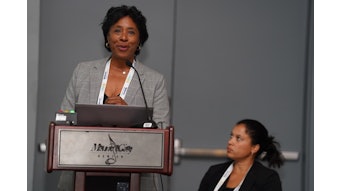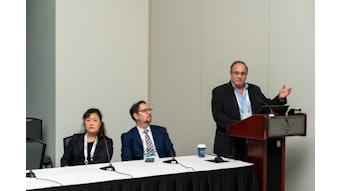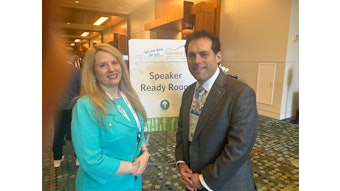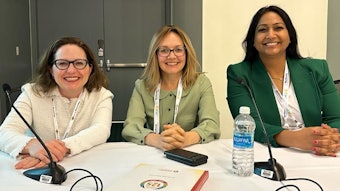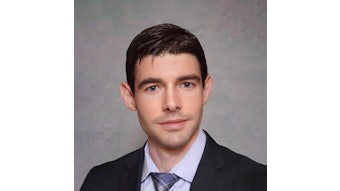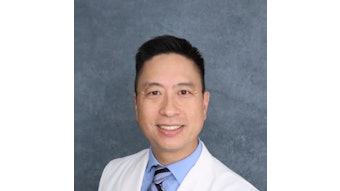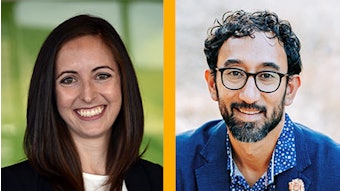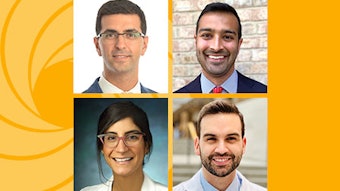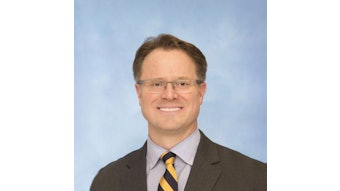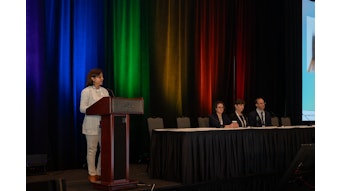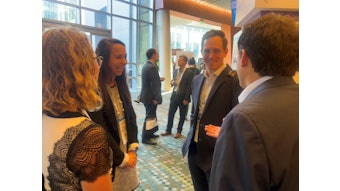Preventing Unintended Consequences
How to handle challenging ethical dilemmas related to restricted resources, personality problems, and work-life balance.
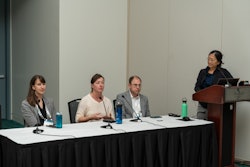
Medical ethics are often associated with high-intensity clinical dilemmas, but ethical dilemmas can actually infiltrate the daily lives of surgeons in other ways. And while day-to-day ethical conundrums are not as obviously intrusive, they can still result in substantial consequences.
Four surgeons posed a series of ethical dilemmas and discussed how they would address them in Monday’s “Ethics in Our Everyday: Restricted Resources, Personality Problems and Work-Life Balance.” The Panel Presentation was moderated by Jennifer J. Shin, MD, SM, and included the following panelists: Andrew G. Shuman, MD, HEC-C, Jeanne L. Hatcher, MD, and Madelyn N. Stevens, MD.
The first case study involved the loss of staff since COVID and insufficient space for block time, causing some surgeons to face repeated lack of access despite having waiting cases. Some surgeons are allocated zero block time and can only add cases through a wait list. The wait list can result in children or seniors having their cases scheduled in the evenings and other less than ideal times. It can also result in patients not knowing when their procedures are scheduled until two weeks out.
Dr. Shuman said this is a “ubiquitous issue,” and “it becomes a little like whack-a-mole about squeezing patients in.” He insisted that consistency and transparency must reign. “Allocation of resources needs to be done with broad rules that apply from an OR level or hospital level versus an individual level,” he said.
“We always want to advocate for our own patients,” agreed Dr. Stevens. “You have to do it in an equitable manner. I am very transparent with my patients.”
Dr. Shin asked if zero block time is an ethically sound ongoing situation for a practicing surgeon. The panel universally agreed it is not sound.
“Another way of thinking of it is perhaps not every case needs to be done by you, especially in a team-based environment. We practice a team-based sport,” said Dr. Shuman.
COVID’s lack of resources and time have made most people more understanding about delays with scheduling. Dr. Hatcher said communication is essential and suggested putting some of the ownership back on the patient. You can provide the date for the patient and suggest they call in to find out if there have been any cancellations if they want something sooner or perhaps select a date a little farther out that might be more convenient, she said.
She pointed to the ethical rub doctors and patients inevitably face: Doctors made a promise to do no harm, but patients have a narrow lane to operate in with their insurance coverage. The best thing to do, she said, is to let the patient know that doctors believe it is unfair, commiserate with them on the wait, and acknowledge their frustration.
The second case study focused on personality problems of a doctor who might be in a leadership role.
“In medicine, we are not always very good at defining a good leader,” Dr. Shuman said. “They could be a great doctor, but just not cut out to build the team.” He suggested reassigning that person to a role that plays to his or her strengths.
Dr. Stevens agreed saying “do no harm” should apply to staff as well as patients.
The final case study explored a difference in work-life balance and how that could affect the rest of the team.
“How much time should an individual dedicate to their craft? Is this being driven by the individual or the institution? We must recognize that there is a differential between individuals. Some consider 80 hours a week appropriate, while others put the cap at 45 hours a week,” Dr. Shuman said.
Dr. Shin wrapped up the panel by calling for equity, integrity, and perhaps a solution for the inevitable inbox explosions. Her institution is trying out “delayed sends.” If a doctor wants to work through emails on weekends or late at night, that is fine. However, the emails will not be sent until “office hours.” She insisted it should be “quality of time over the quantity of time.”
